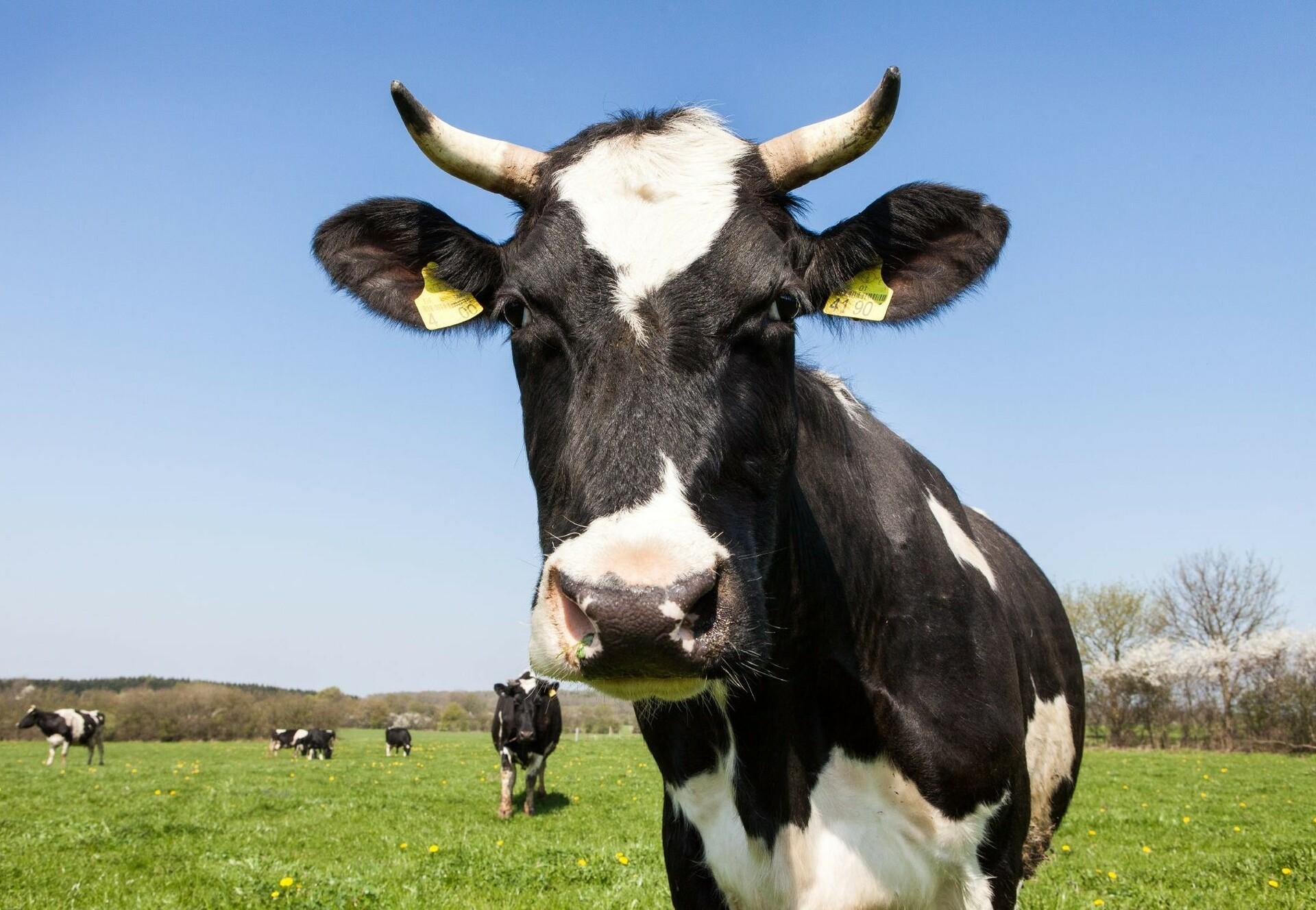
10 facts about dairy cattle
Interesting and surprising facts about cows
Milk is a dairy product that is in many food products, such as cheese and yoghurt. It comes from dairy cattle (dairy cows), which are specific breeds of cattle that have been bred and farmed for their ability to produce large amounts of milk for human consumption. For the female cows to produce milk, they need to be continuously impregnated and sadly, for many dairy cows around the globe, life is far from dignified; being used and abused in farming systems. These animals are intelligent and fascinating! How much do you know about dairy cattle?
Did you know...
- Cows have with a visual field of 330° almost an all-around view. They can see the colours yellow, green and blue whereas red is hard to see for them.1
- The natural life expectancy of a cow is around twenty years. Some get up to 25 years old. The age of a cow can be determined by looking at its teeth. Also, the number of rings in its horns draws conclusions about the age. In the dairy industry, cows usually don’t become older than five years.2
- Cows don’t need much sleep. Per day they only sleep around 30 minutes in deep sleep that is divided in 6-10 short periods. Nevertheless, the are lying up to 10 hours daily.3
- Cows have a strong sense of smell. They can perceive smells at a distance of up to ten kilometres.4
- Compared to the hearing of humans, the hearing ability of cows is better in the deep and high frequency ranges.4
- Cows are moving constantly during grazing and can cover 13 km per day.5
- Cows are very social animals. They live in small herds of 20-30 animals and form close friendships with other animals in their herd. Licking each other reinforces relationships between the animals and has a relaxing effect.6
- Cows drink daily up to 100 litres. That almost complies with a whole bathtub of water.7
- Pregnancy lasts nine months, just like with human beings. Cows only give milk when they have a calf.8
- Besides the 'mooing' cows use their body language, such as the position of the head, limbs and tail, as well as facial expressions, in order to communicate.9
Source
1. https://www.thevetgroup.com.au/sight-and-safety-looking-at-the-world-through-cow-coloured-glasses/
2. De Vries, A., & Marcondes, M. (2020). Review: Overview of factors affecting productive lifespan of dairy cows. Animal, 14(S1), S155-S164.
3. http://www.milkproduction.com/Library/Scientific-articles/Housing/Cow-comfort-9/
4. https://www.publish.csiro.au/ebook/chapter/9781486301614_Chapter4, p. 42
5. https://literatur.thuenen.de/digbib_extern/bitv/zi038397.pdf, S.70
6. http://www.milkproduction.com/Library/Scientific-articles/Housing/Cow-comfort-5/
7. https://www.independent.ie/business/farming/teagasc-guidelines-to-follow-when-calculating-an-animals-water-need-26622254.html
8. https://animalcare.folio3.com/how-long-are-cows-pregnant/
9. https://www.slu.se/en/ew-news/2018/5/cows-body-language-may-tell-us-what-they-are-feeling/
2. De Vries, A., & Marcondes, M. (2020). Review: Overview of factors affecting productive lifespan of dairy cows. Animal, 14(S1), S155-S164.
3. http://www.milkproduction.com/Library/Scientific-articles/Housing/Cow-comfort-9/
4. https://www.publish.csiro.au/ebook/chapter/9781486301614_Chapter4, p. 42
5. https://literatur.thuenen.de/digbib_extern/bitv/zi038397.pdf, S.70
6. http://www.milkproduction.com/Library/Scientific-articles/Housing/Cow-comfort-5/
7. https://www.independent.ie/business/farming/teagasc-guidelines-to-follow-when-calculating-an-animals-water-need-26622254.html
8. https://animalcare.folio3.com/how-long-are-cows-pregnant/
9. https://www.slu.se/en/ew-news/2018/5/cows-body-language-may-tell-us-what-they-are-feeling/
